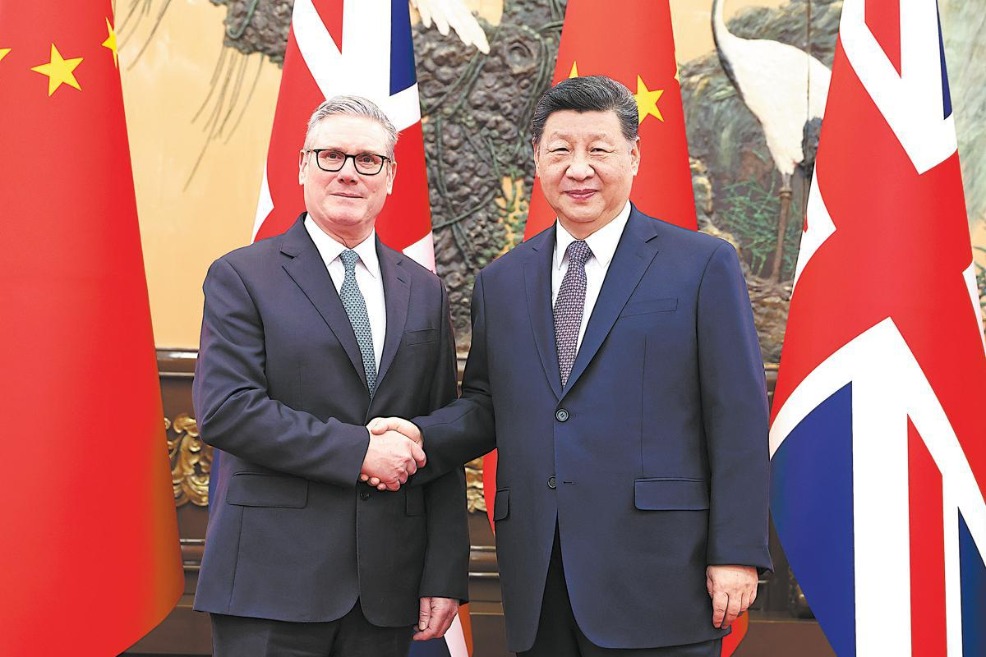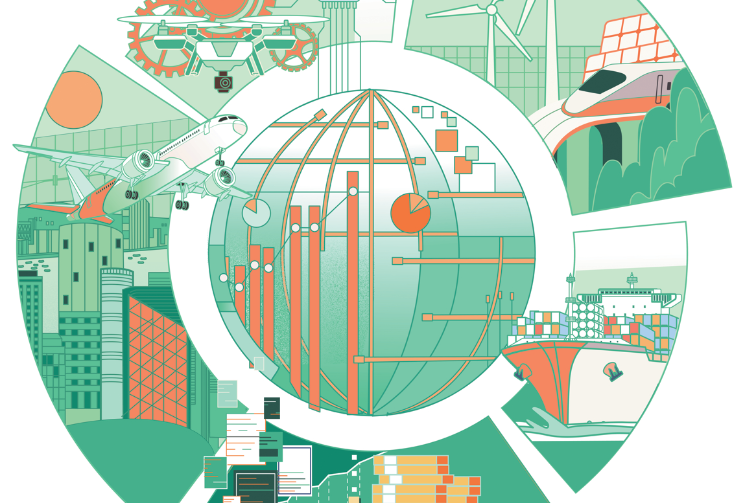No one is an island


All nations and peoples must urgently join hands to create a shared future
Today, we find ourselves at the center of a variety of converging global crises and increased uncertainty which have made it necessary to reassess the international order.
No country is an island in today's increasingly interconnected world. Indeed, isolationism is simply no match for viruses, wildfires, sea level rise, cyberattacks, or other non-traditional security threats.
As such, we require solutions underpinned by multilateral cooperation, sustainability, inclusion and partnership.
First, we need to ensure equitable distribution of COVID-19 vaccines and go further in the fight against vaccine inequity.
This is the most pressing task ahead of us, and one that can simultaneously strengthen multilateral collaboration and set the stage for a more secure and cooperative international order in the pandemic and post-pandemic eras.
Thankfully, a variety of safe and effective vaccines are beginning to be distributed, after more than 180 million COVID-19 cases and now approaching 4 million deaths globally.
But, at the moment, only about 20 percent of the global population-mostly those in wealthy countries-have received a jab of a COVID-19 vaccine. That is why global leaders have a moral and humanitarian obligation to rectify the gross vaccine inequity and urgently come together in solidarity to vaccinate the world.
We must remember no one is safe until everyone is safe.
I commend China's robust commitment to ensuring that its COVID-19 vaccines become global public goods, as exemplified by its recent donation of 10 million Sinopharm vaccines to COVAX.
Second, as we strive to vaccinate the world, leaders must also elevate their actions to harness the transformational blueprint of the United Nations Global Goals to build peace and security, and ensure sustainable development.
Indeed, in this pandemic era, division, planetary warming and increased uncertainty, we should recommit to the UN Sustainable Development Goals and the Paris Climate Agreement.
Adopted by 193 countries in New York in 2015, the SDGs offer us a way forward to solve the most critical issues of our time. They also provide humanity and our planet with a collaborative framework to leave no one behind and ensure a better future.
Nearly six years since their adoption, the SDGs have made tangible progress on bettering maternal mortality rates, combating poverty and hunger, and improving the quality of water and sanitation.
But progress is uneven on others, with some sectors and geographic areas moving faster than others, and the COVID-19 pandemic, conflict, and climate change all leading to troubling reversals in SDGs implementation on the ground.
Third, considering the long-term habitability of our planet and the existential fate of humanity is at stake, we simply must come together to raise our urgency and ambition in addressing the rapidly worsening climate crisis.
Climate change is fueling insecurity, conflict, refugee flows and public health threats around the world. Species are at risk of extinction and ecosystems are collapsing.
And these threats do not discriminate; all nations are, and will continue to be, endangered by them as the world continues to warm.
As a result of climate change, rising sea levels are an existential threat to many small island developing states as well as some of the world's most populous and economically-important cities around the world.
In recent weeks, much of the northern hemisphere has been suffering through an exceptional heat wave, with temperatures in the Siberian town of Verkhoyansk in the Arctic Circle even soaring to 48 C on June 21.
And densely populated areas of the Middle East and South Asia are now experiencing heat waves of such severity that doctors are sounding the alarm about the capacity of humans to physically withstand them in the years ahead.
But warming is not just a future threat. A landmark study released last month in the scientific journal Nature says that nearly 37 percent of all global heat-related deaths can now be blamed on human-caused climate change.
To mitigate these threats, we must, as a matter of urgency, step up our collective efforts to cut global emissions and implement the Paris Climate Agreement.
The Paris Agreement, signed by 197 countries in 2015, offers us a clear game plan to confront existential threat. It sets viable targets to impede rising temperatures, constrict greenhouse gas emissions and spur climate-resilient development and green growth.
To faithfully implement the Paris Agreement and push it further, countries need to expand their ambitions and increase their sense of urgency to cut greenhouse gas emissions. And we must secure increased climate financing from upper income nations and through the catalyzing power of cooperation and partnerships.
In this regard, I commend China and other nations for their commitments to reach net-zero emissions.
Not only is the fate of the health, security and well-being of our planet and humanity at stake, but the dawn of a new international order that is anchored in multilateral cooperation, security, partnership, sustainability and prosperity is in our hands.
It is clear that we can't return to the way things were prior to the pandemic. Indeed, we must build back better and greener, by constructing healthier societies for all peoples and our planet.
At the same time, our multilateral recovery from this pandemic and its secondary impacts must also address climate change and inequality to steer us to a more sustainable, inclusive and resilient future. This is especially important in this era of growing uncertainty, great power rivalry and rapid change.
The strong cooperation and leadership of China and the United States were integral to the realization of the Paris Agreement and securing those 197 signatures in 2015. And I do hope that the spirit of this paradigm-shifting example of Sino-US cooperation can also be replicated to address other significant global health, climate and security challenges today.
In our increasingly interconnected world, global challenges can only be solved by global responses. We should recall President Xi Jinping's words: "We live in a shared world and face a shared destiny".
With active efforts, I am confident that our world will continue to flourish and be secure, sustainable, harmonious and prosperous for the next generation and beyond.
The author is former United Nations secretary-general and chairman of Ban Ki-moon Foundation for a Better Future. The author contributed this article to China Watch, a think tank powered by China Daily.
The views do not necessarily reflect those of China Daily.


































